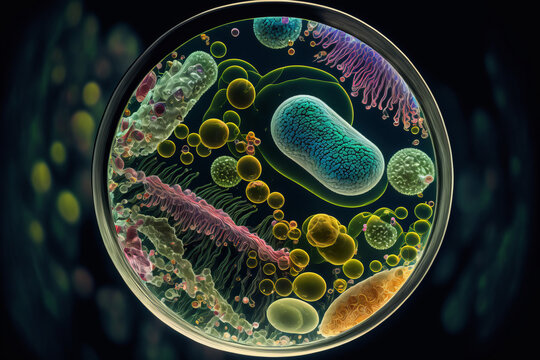
Microbiology
Microbiology is the study of tiny living things that we can’t see with our eyes alone, like bacteria, viruses, fungi, and other microorganisms. These tiny organisms are everywhere, in the air, water, soil, and even inside our bodies. Microbiologists study how these microorganisms live, grow, and interact with their environments. Understanding these small life forms is important because they play a big role in our lives, from helping us digest food to causing diseases.
Back Home
When was it discovered?
Microbiology began in the late 1600s when Antonie van Leeuwenhoek, a Dutch scientist, first observed bacteria and other microorganisms using a simple microscope he made himself. This was the first time anyone had seen these tiny life forms, which were previously unknown. Over the years, microbiology grew as a science, especially in the 1800s with the work of scientists like Louis Pasteur and Robert Koch, who discovered how microorganisms cause diseases. Today, microbiology is a major field of science that helps us understand the role of microorganisms in health, the environment, and industry.

How does it help us?
Microbiology helps us in many ways, from keeping us healthy to protecting the environment. By studying microorganisms, we learn how to prevent and treat diseases caused by bacteria, viruses, and fungi. Microbiologists also develop antibiotics and vaccines that save millions of lives. In addition, microbiology plays a key role in environmental science, where microorganisms are used to clean up pollution, recycle waste, and even produce biofuels. The food industry relies on microbiology to make products like yogurt, cheese, and bread. Overall, microbiology is essential to medicine, industry, and the environment.

How does understanding microorganisms help us in daily life?
Understanding microorganisms helps us in daily life by keeping us healthy and improving the world around us. For example, by knowing how bacteria and viruses spread, we can prevent infections by washing our hands, cooking food properly, and getting vaccinated. In agriculture, understanding microorganisms helps farmers grow crops more efficiently by using natural fertilizers and pest control. In everyday products like cleaning supplies and food, microbiology ensures safety and quality. Simply put, the more we understand these tiny organisms, the better we can protect our health and improve our lives.
Recap
What is Microbiology?
Microbiology is the study of tiny organisms like bacteria, viruses, and fungi that are invisible to the naked eye.
When was it discovered?
It started in the late 1600s when Antonie van Leeuwenhoek first observed microorganisms through a microscope.
How can it help us?
Microbiology helps in medicine, environmental protection, food production, and improving daily life by understanding and using microorganisms.